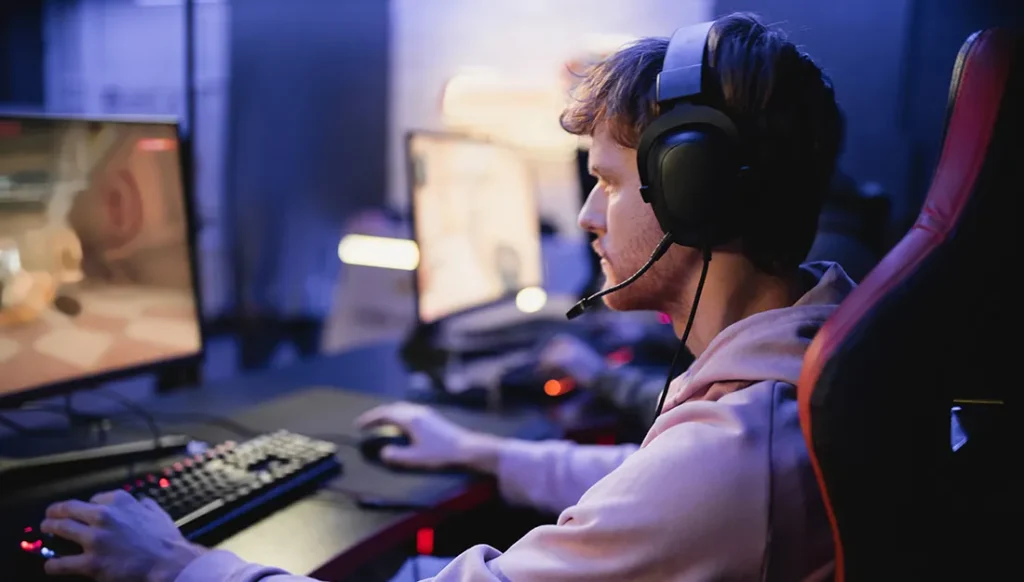The Impact of Online Multiplayer Gaming on Social Interaction: A Comprehensive Analysis

Online multiplayer gaming has revolutionized how people interact socially, transcending geographical boundaries and creating virtual communities. This article delves into the multifaceted impact of online multiplayer gaming on social interaction, examining its positive and negative implications. From the formation of online communities to the emergence of esports and concerns about gaming addiction, this discussion sheds light on the evolving landscape of social dynamics in the digital age. Additionally, online gaming has become a catalyst for social change through platforms like Sobat Gaming (a fictional example), which promotes inclusivity and diversity. As individuals from different backgrounds come together to collaborate and compete, they contribute to the richness and diversity of the gaming experience while forging meaningful connections with fellow players.
Formation of Online Communities
The Rise of Virtual Tribes
Online multiplayer gaming has given rise to virtual tribes, where individuals with shared interests and passions come together to collaborate, compete, and connect. These communities transcend physical limitations, fostering friendships and camaraderie among players from diverse backgrounds. From guilds in MMORPGs to clans in competitive shooters, these virtual tribes serve as platforms for social interaction, teamwork, and collective achievement.
Building Lasting Relationships
One of the most significant impacts of online multiplayer gaming on social interaction is its ability to facilitate the formation of lasting relationships. Through shared gaming experiences, players forge bonds extending beyond the virtual realm, leading to real-life friendships and romantic relationships. The collaborative nature of multiplayer games fosters trust and communication, strengthening interpersonal connections and creating a sense of belonging within online communities.
The Rise of Esports
From Casual Play to Competitive Sports, Esports, or competitive gaming, has emerged as a global phenomenon, captivating millions of viewers and players alike. What once began as casual play among friends has evolved into a professional sport with lucrative tournaments, sponsorships, and dedicated fan bases. Esports showcases top players’ skill and dedication and fosters a sense of community among spectators, who rally behind their favorite teams and players.
Fostering a New Generation of Athletes
The rise of esports has blurred the lines between traditional sports and gaming, giving rise to a new generation of athletes. Like traditional athletes, professional gamers undergo rigorous training regimens, mental conditioning, and strategic analysis. This shift in perception has led to increased recognition and acceptance of gaming as a legitimate competitive pursuit, further fueling the growth of the esports industry.
Potential for Online Gaming Addiction
Understanding Gaming Disorder
While online multiplayer gaming offers numerous benefits, it also carries the risk of addiction for some individuals. Gaming disorder, characterized by excessive and compulsive gaming behavior, can have detrimental effects on mental health, relationships, and overall well-being. Factors such as escapism, social isolation, and reinforcement mechanisms within games contribute to the development of gaming addiction, warranting greater awareness and intervention.
Addressing Concerns and Promoting Responsible Gaming
As the prevalence of gaming addiction continues to rise, there is a growing need for measures to address and mitigate its impact. Game developers, policymakers, and educators are crucial in promoting responsible gaming practices and raising awareness about the potential risks of excessive gaming. Initiatives such as parental controls, time management tools, and educational campaigns aim to empower players and families to maintain a healthy balance between gaming and other activities.
Conclusion:
Online multiplayer gaming has profoundly influenced social interaction positively and negatively. From forming vibrant online communities to emerging esports as a mainstream phenomenon, gaming has become a cornerstone of modern social culture. However, concerns about gaming addiction underscore the importance of promoting responsible gaming practices and fostering a balanced approach to gaming in the digital age. By understanding the complexities of online multiplayer gaming and its impact on social dynamics, we can harness its potential for positive social change while mitigating potential risks.


